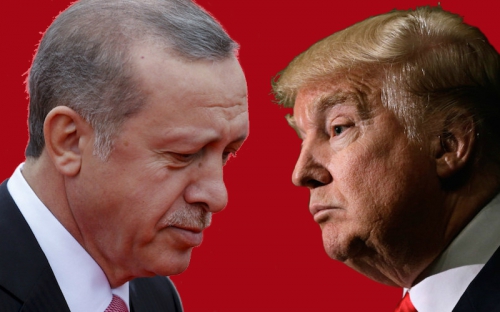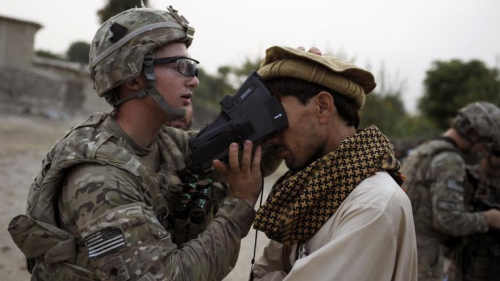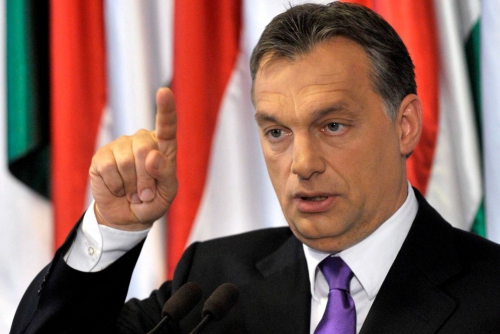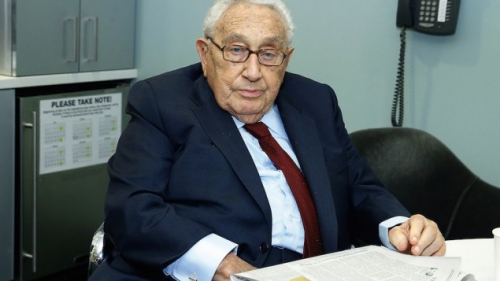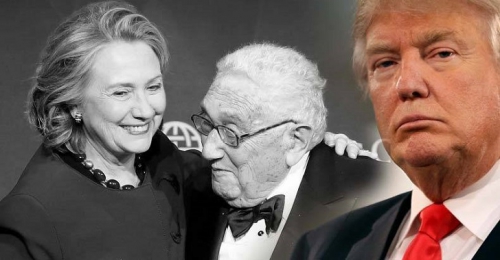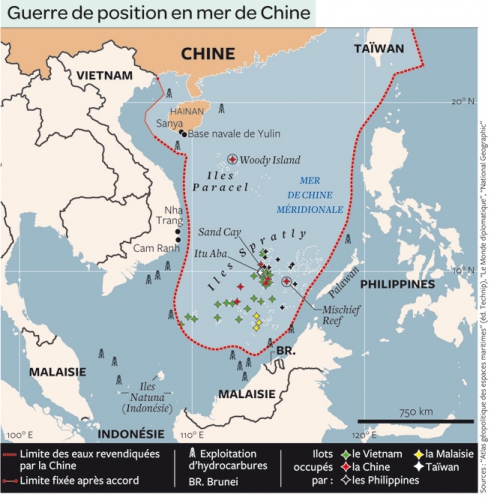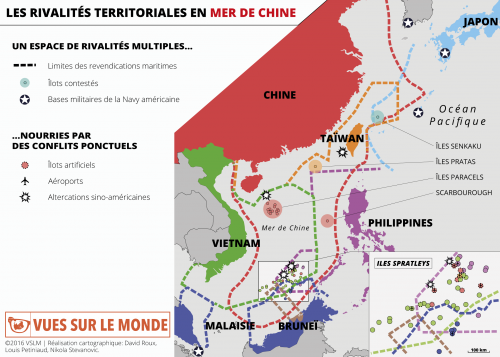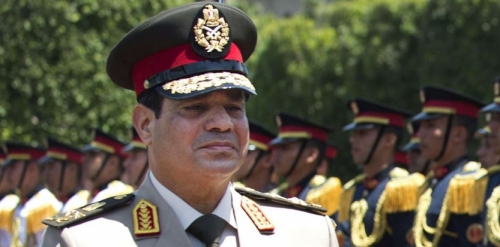Die Presseschau Spezial wünscht ein frohes neues Jahr!
Und wieder einige Links. Bei Interesse anklicken...
###
AUßENPOLITISCHES
Österreich
FPÖ-Kandidat Hofer lehnt Todesstrafe strikt ab
Kommentar zum Wahlsonntag in Österreich
Heile Welt für einige Stunden
von Thomas Fasbender
Österreich nach der Wahl: Wie weiter?
Verfassungsreferendum in Italien vom Volk abgelehnt – Ministerpräsident Renzi kündigt Rücktritt an
(EU-Krise)
Der schwarze Juni 2016 und seine Folgen
Rekordhohe Ungleichgewichte bei Target-Salden
Deutschlands heimliches 750-Milliarden-Risiko
(EU-Schuldenkrise)
Robert Halver: Denken Sie sachkapitalistisch
Sarrazin: Euro hat den meisten Staaten nur geschadet
Keine Strafe wegen ihrer „Persönlichkeit“
Christine Lagarde ohne Strafe schuldig gesprochen
Wahlleute bestätigten Trump als Präsident
Wahlleute bestätigen Trump
Das vergebliche Aufbäumen von Hollywoods Spaßgesellschaft
von Thomas Fasbender
Trump, Aleppo und der "Stiefelabdruck der Globalisten"
Die jüngste Personalie des designierten US-Präsidenten Donald Trump, nämlich Rex Tillerson für das Amt des Außenministers auszuwählen, hat bei europäischen Diplomaten, vor allem aber bei bundesdeutschen Mainstream-Medien erhebliche Ängste ausgelöst.
KenFM am Set: Demonstration gegen russische Kriegsbeteiligung in Syrien
Putin und die Populisten
Das rechte Netz des Kreml
(Zu offiziellen Verschwörungstheorien…)
Der Russe war´s
von Thomas Fasbender
Eine Kanzlerin vor dem rußlandpolitischen Offenbarungseid
von Thomas Fasbender
Trump über Putin
„Ich habe immer gewusst, dass er sehr klug ist“
Anschläge in der Türkei
29 Tote und 166 Verletzte in Istanbul
Istanbul
Türkische Behörden verbieten Weihnachten an deutscher Auslandsschule
Deutschland schickt Dutzende Lehrer an Schulen in der Türkei. Das Ziel: die Vermittlung deutscher Kultur. An einer dieser Schulen haben die Behörden ein Stück deutsche Kultur nun untersagt.
Moskau spricht von „Terrorakt“
Türkischer Polizist erschießt russischen Botschafter in Ankara
(Eine unglaubliche Neuigkeit…)
Saudi-Arabien soll deutsche Salafistenszene unterstützen
Geld für Moscheen, Prediger aus Saudi-Arabien: Organisationen der Golfstaaten helfen laut Medienberichten deutschen Islamisten bei der Missionierung.
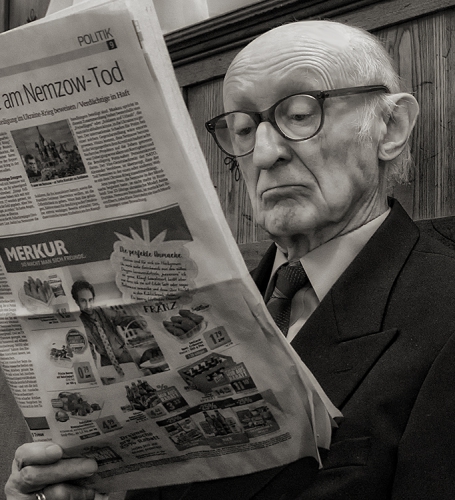
INNENPOLITISCHES / GESELLSCHAFT / VERGANGENHEITSPOLITIK
Jahresrückblick
Im Gegenwind
von Paul Rosen
CDU-Bundesparteitag
Rechts angetäuscht
von Christian Vollradt
Gauck im Glashaus
von Michael Paulwitz
(Aufschlussreicher Auftritt Merkels…)
Schreckensnachricht erreichte Merkel bei Integrationsfeier
Meinung
Kanzlerin ohne Kleider
von Thomas Fasbender
Kampf um Platz für den Bundestag
Schallende Ohrfeige für Volker Beck: Grünen-Politiker erlebt Fiasko bei Abstimmung
Martin Schulz verabschiedete sich vom Parlament / Kampfansage an die Spalter und Hetzer
Der unbequeme Präsident
Datenschutzpläne des Innenministeriums: So vernichtend fällt das Urteil von Datenschutzorganisationen zum Gesetzentwurf aus
Anteil der Niedriglohnempfänger wächst rasant
Mittlerweile verdient jeder fünfte Beschäftigte in Deutschland weniger als zehn Euro in der Stunde. Neue Zahlen aus dem Arbeitsministerium zeigen einen klaren Trend.
(Zur Schönrechnung der Kriminalitätsstatistik a la Christian Pfeiffer…)
Kriminalitätsstatistik politisch korrekt schöngeredet
von Jost Bauch
(Zu Christian Pfeiffer, Jörg Kinzig und Co.)
Zahlenspiele mit importierter Gewalt
Welle der Desinformation
von Michael Paulwitz

LINKE / KAMPF GEGEN RECHTS / ANTIFASCHISMUS / RECHTE
(Strategiediskussion)
Sündenbock und Kantenschere
Von Martin Sellner / Identitäre Bewegung
(Ein weiterer linksliberaler Analyseversuch. Diesmal von der berüchtigten Bertelsmann-Stiftung)
Bertelsmann-Studie
Globalisierungsängste verschaffen Populisten Zulauf
Warum wählen Menschen in Europa populistische Parteien und was treibt sie zu Politikern, die ihnen einfache Lösungen versprechen? Diesen Fragen ging die Bertelsmann-Stiftung in einer europaweiten Umfrage nach. Das Ergebnis: Eine wesentliche Rolle spielt die Angst vor der Globalisierung - doch auch das Familienbild ist von Belang.
Von Christiane Habermalz
Politische Kultur
Aufstand der Vergessenen
Der Populismus triumphiert – und ist schon tausendfach analysiert worden. Aber was folgt daraus? Nach der Wahl Donald Trumps ist die Frage: Lässt sich eine neue politische Kultur überhaupt aufhalten? Ein Kommentar.
AfD und Facebook
Eine eigene Wirklichkeit für die Anhänger
Der Erfolg der AfD ist eng verbunden mit dem Internet. Soziale Medien helfen der Partei in den offenen Auseinandersetzungen mit traditionellen Medien. Keine Partei hat mehr Anhänger auf Facebook.
(Zur Kampagne gegen "Fake News")
Postfaktische Zensoren
von Michael Paulwitz
Maas droht Fake-News-Verbreitern mit Gefängnis
Fake News
Innenministerium will Abwehrzentrum gegen Falschmeldungen einrichten
1933 lässt grüßen: Amadeu Antonio Stiftung und ZEIT publizieren Liste falsch-deutscher Erzeugnisse im Internet
München: Identitäre verschönern Frauenkirche
Identitäre blockieren CDU-Zentrale in Berlin
Identitäre Bewegung hängt Banner am Kölner Hauptbahnhof auf
(ab Minute 3:50)
CSU-Politiker kritisieren Kooperation mit Kahane-Stiftung
(SPD-Vize…)
Ralf Stegner empfiehlt Islamkritikern Arztbesuch
Magdeburg lädt aus
Verzagt
Es gibt gute Argumente für Demokratie und Grundrechte. Mit denen sollte man einem neurechten Volksideologen wie Götz Kubitschek doch beikommen können.
(Dazu…)
Zagreb und Magdeburg
Kubitschek erwirkt einstweilige Verfügung gegen Lischka
Über Rassismus reden
Das sagt man nicht!
Kritik an Diskriminierungen ist schön und gut, sollte sich aber nicht zur Identitätspolitik versteigen. Die haben nämlich die Rechten erfunden.
Dresden
Kirche empört über AfD-Auftritt von Ex-Pfarrer in Talar
Der Links-Staat: Was braven Bürgern ganz bewusst verschwiegen wird
Udo Ulfkotte
Die Realität des „Links-Staats“ in Deutschland
Stuttgart: „Nie wieder Deutschland“ – linksextreme Strukturen offengelegt
Andrej Holm
Stasi und linksextreme Szene
Linksradikaler als Staatssekretär in Berlin nominiert
AfD fordert Erklärung von designiertem Staatssekretär Holm zu „Roter Hilfe“
Die linksextremen Kontakte von Berlins neuem Staatssekretär Andrej Holm
(Zu Gerald Hensel von "Scholz & Friends")
Der Denunziant von Scholz & Friends
(Ebenfalls zu "Scholz & Friends")
#keingeldfuerrechts
Blockwart & Friends
von Michael Paulwitz
#keingeldfuerrechts
Gerald Hensel weist Antisemitismus-Vorwürfe zurück und kündigt bei Werbeagentur
(Vorsitzender der Gesellschaft für Christlich-Jüdische Zusammenarbeit in Bonn, Siegfried Eckert…)
Kirchentagspräsidium
AfD soll nicht auf den Kirchentag
(Hipsterbude erteilt Restaurantverbot für AfD-Anhänger…)
"Ich möchte keine AfD-Leute bedienen"
Ende November sorgte das AfD-Verbot im Berliner Restaurant "Nobelhart & Schmutzig" für große Aufregung. Inhaber Billy Wagner äußert sich nun zu den Gründen. Ihm sei die Partei "nicht geheuer".
(Während die bürgerlich-etablierte Presse noch über "Unbekannte" munkelt, bekennt das "Neue Deutschland" zumindest offen, dass es sich um "Linksradikale" handelte…)
Linksradikale greifen neue CSU-Zentrale an
Rauchbomben und Graffiti am Franz-Josef-Strauß-Haus in München / Bundesweite Kampagne bekennt sich laut Plattform zum Anschlag
Schwerer Landfriedensbruch
Polizei nimmt 50 linke Randalierer in München fest
Antifa-Laden von türkischen Nationalisten bedroht
Linker Handel in Kreuzberg sollte Plakat für kurdische Demonstration abnehmen / Aktivisten wiegeln ab: "Es ist nichts passiert"
(Kuscheljustiz gegenüber links…)
Krawalle in Leipzig
Drei von 1.000 linksextremen Gewalttätern verurteilt
Antifa-Einbruchsversuch zu Weihnachten
Am 24. feiern Leute die ein Leben haben mit ihren Lieben Weihnachten. Nicht so die "Antifa".
Sie nutzten den Feiertag um in die Wohnung von Marlis und Richard, zwei IB-Wien Aktivisten einzubrechen. Zumindest versuchten sie es, scheiterten aber an der Tür, an der sie dann ihre kindische Wut ausließen.

EINWANDERUNG / MULTIKULTURELLE GESELLSCHAFT
VIDEO: Soros-finanzierte NGOs des "massenhaften" Flüchtlingsschmuggels beschuldigt
(Analyse zum Besuch von Gauck in einer Schule in Offenbach…)
Gaucks Kampf gegen das alte Volk
Die Offenbacher Rede des Bundespräsidenten seziert
Offenbach
Muslimische Schülerin verweigert Gauck Handschlag
Heusenstamm
Adolf-Reichwein-Gymnasium feiert sein 50-jähriges Bestehen
Ohne Rassismus – mit Courage
Familiennachzug: Zehntausende Migranten holen Familien nach – „Größeres Problem als neue Flüchtlinge“
Flüchtlingskosten explodieren
Asylkrise kostet drei Milliarden Euro mehr
Die Profiteure der Asylindustrie in Sachsen
CDU-Mitglied hat Flüchtlingsfrage
So antwortet Merkel einem Ängstlichen
Kleine Geschichten aus dem bunten Deutschland
Kommentar zum Zeitgeschehen aus den USA: Make Germany Great Again [dt. Untertitel]
„Integrations“-Ausgaben in Sachsen
Millionen für multikulturellen „Schabernack“
von Michael Paulwitz
Kürzungen für im EU-Ausland lebende Kinder
Heftige Kritik an Gabriels Kindergeld-Vorschlag
Imad Karim
„Jedes Unrecht beginnt mit einer Lüge!“
Frustration, Ernüchterung und Ermüdung
Kölner Asylinitiativen fehlen freiwillige Helfer
Frankfurt will erste „bunte“ Verwaltung im Bund
„Interkulturelle“ Gesinnung wichtiger als fachliche Kompetenz
Lieder in der Heimatsprache
Kölns Bürgermeisterin läßt Flüchtlingschor zu Silvester singen
Der Staat als Kuppler?
Freiburg
Tote Studentin – Verdächtiger ist 17-jähriger Flüchtling
Tagesschau zu Freiburg-Mord
ARD: Allgemeines Relevanz Desaster
von Felix Krautkrämer
Kommentar
Das tote Mädchen und das kranke Land
„Eyes wide shut“ beim Freiburg-Mord
Ein kurzes Schlaglicht auf eine große Familie.
Mordfall in Freiburg
Das Strafregister des Hussein K.
Der mutmaßliche Mörder von Maria L. soll schon einmal eine Studentin überfallen und eine Steilküste hinabgeworfen haben. Die Polizei hat wegen entsprechender Hinweise ein Rechtshilfeersuchen gestellt.
So profitierte Hussein K. vom Flüchtlingschaos in Europa
Vergewaltigungen in Bochum
Freund des Opfers gibt den entscheidenden Hinweis
Tatort U-Bahnhof Hermannstraße
Berlin-Neukölln: Mann tritt Frau die Treppenstufen runter
(Dazu ein Kommentar…)
Der schutzlose Staat
von Lukas Steinwandter
"U-Bahn-Treter" aus Roma-Viertel von Varna - Bulgarisches TV besucht Svetoslav Stoykovs Familie
Überforderte Behörde verließ sich auf freiwillige Ausreise
Mutmaßlicher Vergewaltiger trotz Vorstrafe nicht abgeschoben
Flüchtlinge: 2016 fast 300 Morde bzw. versuchte Tötungen
Seligenstadt
Polizei schwieg lange
Nach Prügelei an Merianschule: Gratwanderung für Pädagogen
(Vergleichbare Szenen)
Jagdszenen vor dem Pfälzer Schloss in Groß-Umstadt / Polizei sucht Zeugen
Mit Messern und Kabel: Streit unter Schülern eskaliert
Augsburg
Afrikaner rastet vor Gericht aus
Bluttat von Unterwellenborn: Polizei sucht 35-jährigen Emrah Mutlu
Oberhausen
Polizei verhindert Anschlag auf Einkaufszentrum
St. Johann im Pongau
Bande junger Türken verprügelt Krampusse
(Nicht strafmündig…)
Weihnachtsmarkt Ludwigshafen
Anschlagsplan von Zwölfjährigem schockiert – doch es gab schon ähnliche Fälle
Festnahme in Österreich
Salzburg: Marokkaner plante Anschlag auf Weihnachtsmarkt
LKW-Attacke
IS reklamiert Anschlag in Berlin für sich
Anschlag in Berlin
Medien: Terrorverdächtiger Anis A. saß vier Jahre im Gefängnis
Hamburger Justizsenator verhinderte Fahndung
(Gutmenschen-Demo mit Durchhalteparolen in Berlin)
Breitscheidplatz: Rote Herzen und rechte Parolen
Zwei Tage nach dem Anschlag haben Rechte und Linke in Berlin demonstriert. Am Bahnhof Zoo protestierten die Menschen gegen Rassismus. Die AfD rief zu einer Mahnwache auf.
Terror in Berlin
Über der deutschen Ruhe schwebt ein Hauch von Fatalismus
(Zu den Reaktionen auf den Anschlag)
Der Staat tut nicht, was er tun sollte
von Karlheinz Weißmann
(Zu den Reaktionen auf den Anschlag)
Die Stille nach dem Terror
von Dieter Stein
Der 19. Dezember 2016 markiert Merkels Ende
Die Bundeskanzlerin ist politisch und moralisch erledigt
Kommentar zu Berlin
Das Fremde bemächtigt sich unserer Lebenswelt
von Thomas Fasbender
Anis Amri und die grünen Moralapostel
von Michael Paulwitz
Terroristen in Deutschland
Getarnt als Flüchtlinge
Von der Wirklichkeit grausam übertroffen
von Ronald Berthold
Hadmut Danisch
Ansichten eines Informatikers
„Wir werden uns unseren Lebensstil und unsere freie Gesellschaft nicht verbieten lassen.”
Nach Berliner Anschlag
Anis Amri in Mailand erschossen
Nicolaus Fest zum Anschlag in Berlin
Muster oder Zufall:
Einige Fragen zum Anschlag in Berlin
Anis Amri: Terroranschlag mit Ansage
U-Bahnhof Schönleinstraße
Obdachloser in Berlin angezündet: Das sind die Verdächtigen!

KULTUR / UMWELT / ZEITGEIST / SONSTIGES
Polemik gegen die Frankfurter Altstadt
Daniel Libeskind wittert Donald Trump am Hühnermarkt
Christliche Statuen im Kreis Coesfeld zerstört
Coesfeld
Gesichter unkenntlich
Dutzende Heiligenfiguren geschändet
Hitler-Geburtshaus Braunau
Soziale Nutzung des Gebäudes vorgesehen
Kampf um die Erziehungshoheit
von Alexander Heumann
Schlechte Schüler, gute Noten
Lehrerverband fordert: Keine Anerkennung für Berliner Abitur
(Kommentar zu Schönung der Schulnoten…)
Vertagte Siebung
von Karlheinz Weißmann
Polizei: BKA-Bewerber scheitern an Deutschtests
Bundeskriminalamt senkt Bewerbungskriterien
Deutsch für Kommissars-Anwärter
Kündigung des Rundfunkstaatsvertrages
AfD fordert Abschaffung des Rundfunkbeitrags
„Nicht die Mehrheit“
Kardinal Woelki: Hetze im Netz muß bestraft werden
Kampf gegen Fake-News
Künast stellt Strafanzeige wegen Falschnachricht auf Facebook
Die Grünen-Politikerin Renate Künast wehrt sich mit juristischen Mitteln gegen die Verbreitung einer Falschnachricht auf Facebook. Es geht um ein erfundenes Zitat von ihr.
Studie der Kölner Journalistenschule
Gericht: Petry nicht Falschaussagen-Spitzenreiterin
(Rückkehr des Keuschheitsgürtels?...)
Enttarnte Mörder
Namenslisten von Stalins Schergen erregen Russland
Auftraggeber, Komplizen, Killer: In Moskau und Tomsk wurden Namenslisten von Stalins Schergen veröffentlicht. Jetzt fürchtet die Politik eine Spaltung des Landes. Die Forscher werden bedroht.
"Holocaust Keule" gegen Hofer - Bellen und Barroso
How low can you go?
("Anfang des Jahres war Stief mit flüchtlingsfeindlichen Tweets aufgefallen, worauf sich das Kulturdezernat der Stadt Frankfurt von den Äußerungen des Explora-Leiters distanzierte und das Land Hessen dem Museum die Zusammenarbeit mit der Familienkarte Hessen aufkündigte.")
Frankfurt
Privatmuseum wurde verkauft
Explora-Schau schließt für immer
Edeka-Werbung
Ganz normaler Irrsinn
von Michael Klonovsky
Statistik
Vom angeblichen Rassismus in der Modebranche
von Lukas Mihr
Bonn: „Nazi-Zeichen“ am Weihnachtsmarkt
Verhandlung gegen Kabeldiebe
Prozeß platzt wegen Lob für Sarrazin
Briten protestieren gegen neue Fünf-Pfund-Note
Tierfett im Geldschein? Disgusting!
Die neue Fünf-Pfund-Note verärgert Zehntausende Briten: Die jüngst präsentierten Geldscheine enthalten tierisches Fett. 125.000 Menschen unterzeichneten eine Petition gegen die Noten, ein Café verweigert die Annahme.
Wachstumskritik (XII): Not macht erfinderisch
(Geschichte des Kapitalismus)
Ulrike Herrmann, Wirtschaftsjournalistin - ARD-alpha
Ulrike Herrmann ist Bankkauffrau und Journalistin, seit 2000 ist sie Redakteurin bei der taz. Ihr Spezialgebiet ist die Finanz- und Eurokrise, im September 2016 erschien ihr Buch "Kein Kapitalismus ist auch keine Lösung. Was wir heute von Adam Smith, Karl Marx und John Maynard Keynes lernen können".
Die Hetze der Hüter der „liberalen Ordnung“
Von Wolfgang Hübner
Marcus Pretzell
Bekenntnisse eines Realisten gegen die Romantiker, Teil 1
Verhängnisvoller Kult um Opfer und Selbstmord
Marcus Pretzell
Bekenntnisse eines Realisten gegen die Romantiker, Teil 2
Der fehlgeleitete Kult um den Faschismus
Zwischen den Stühlen I – Alte Freunde
Zwischen den Stühlen II – Neue Freunde
(Augsburg muss nach Fund einer Weltkriegsbombe seine komplette Innenstadt evakuieren)
Weltkriegsbombe in Innenstadt
"Heiße Phase" der Entschärfung in Augsburg hat begonnen
Vor 100 Jahren
Die verspielte Chance auf Frieden
von Stefan Scheil
Taiwan high school students pulled a nazi parade
Acropolis – Parthenon (Baugeschichte im Film)
(Zum Film "Willkommen bei den Hartmanns")
Fack Ju, Germany





 En 2006-2007, le Dr. Ulfkotte adhère à un mouvement, Pax Europa, qui entend, comme son nom l’indique, sauver la paix civile dans tous les pays européens où des conflits internes risquent d’éclater vu l’incontrôlabilité des réseaux salafistes et les désirs inavoués des services américains de voir les concurrents européens plongés dans les affres d’un désordre ingérable. En août 2007, Pax Europa souhaite manifester à Bruxelles devant le Parlement Européen. La manifestation est aussitôt interdite par le politicien bruxellois le plus méprisable de l’histoire de la ville, le bourgmestre Freddy Thielemans, un anticlérical viscéral, qui avait offert du champagne à la galerie au moment où le Pape Jean-Paul II venait de décéder, un pourfendeur frénétique de la fête de Noël qui a, un moment, supprimé le sapin de la Grand Place et débaptisé le « marché de Noël » en « Plaisirs d’hiver ». Ce laïcard, qui cumule toutes les tares de son idéologie abjecte, est un islamophile délirant, prouvant ici les thèses de certains historiens qui parlent d’une alliance pluriséculaire entre puritains anglo-saxons (et hollandais), laïcards maçonniques français et fondamentalistes hanbalites/wahhabites, dont le dénominateur commun est une haine profonde et viscérale de la culture populaire, de l’humanisme classique, de la culture gréco-latine, de la musique européenne et des arts plastiques. L’avocat et sénateur flamand Hugo Coveliers dépose plainte au nom de Ulfkotte contre l’interdiction par l’innommable Thielemans (aujourd’hui dégommé par ses propres copains qui ne valent guère mieux que lui !). Le 30 août 2007, cette plainte est déclarée irrecevable par les tribunaux de Bruxelles, donnant ainsi la preuve que cette magistraille dévoyée est liée aux services d’Outre-Atlantique, aux cénacles laïcards occultes et à la pègre salafiste.
En 2006-2007, le Dr. Ulfkotte adhère à un mouvement, Pax Europa, qui entend, comme son nom l’indique, sauver la paix civile dans tous les pays européens où des conflits internes risquent d’éclater vu l’incontrôlabilité des réseaux salafistes et les désirs inavoués des services américains de voir les concurrents européens plongés dans les affres d’un désordre ingérable. En août 2007, Pax Europa souhaite manifester à Bruxelles devant le Parlement Européen. La manifestation est aussitôt interdite par le politicien bruxellois le plus méprisable de l’histoire de la ville, le bourgmestre Freddy Thielemans, un anticlérical viscéral, qui avait offert du champagne à la galerie au moment où le Pape Jean-Paul II venait de décéder, un pourfendeur frénétique de la fête de Noël qui a, un moment, supprimé le sapin de la Grand Place et débaptisé le « marché de Noël » en « Plaisirs d’hiver ». Ce laïcard, qui cumule toutes les tares de son idéologie abjecte, est un islamophile délirant, prouvant ici les thèses de certains historiens qui parlent d’une alliance pluriséculaire entre puritains anglo-saxons (et hollandais), laïcards maçonniques français et fondamentalistes hanbalites/wahhabites, dont le dénominateur commun est une haine profonde et viscérale de la culture populaire, de l’humanisme classique, de la culture gréco-latine, de la musique européenne et des arts plastiques. L’avocat et sénateur flamand Hugo Coveliers dépose plainte au nom de Ulfkotte contre l’interdiction par l’innommable Thielemans (aujourd’hui dégommé par ses propres copains qui ne valent guère mieux que lui !). Le 30 août 2007, cette plainte est déclarée irrecevable par les tribunaux de Bruxelles, donnant ainsi la preuve que cette magistraille dévoyée est liée aux services d’Outre-Atlantique, aux cénacles laïcards occultes et à la pègre salafiste. 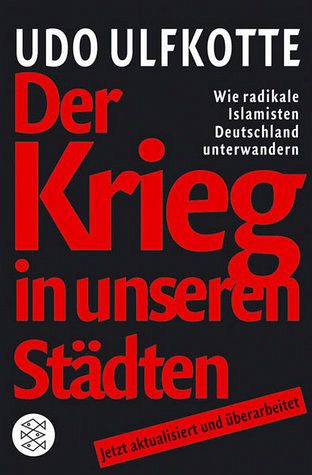 Tournons-nous maintenant vers deux ouvrages du Dr. Ulfkotte. D’abord, l’ouvrage attaqué tous azimuts par les salafistes et leurs alliés, les « foies jaunes ». Il est intitulé Der Krieg in unseren Städten – Wie radikale Islamisten Deutschland unterwandern (« La guerre en nos villes – Comment les islamistes radicaux minent l’Allemagne»), publié en 2003. L’ouvrage démontrait que les réseaux caritatifs salafistes masquaient des financements occultes, pratiquaient le blanchiment d’argent. Ulfkotte accusait principalement les Frères musulmans et le mouvement turc Milli Görüs (qui fut débouté quand il porta plainte contre le livre). Ces réseaux caritatifs, affirmait Ulfkotte, étaient liés à la criminalité organisée. Il déplorait l’inaction de l’Etat allemand, comme nous pouvons déplorer l’inaction des Etats néerlandais, belge et français. Le livre consacré à la nature mercenaire du journalisme allemand, Gekaufte Journalisten – Wie Politiker, Geheimdienste und Hochfinanz Deutschlands Massenmedien lenken (= « Journalistes achetés – Comment le monde politique, les services secrets et la haute finance d’Allemagne manipulent les mass médias ») a été publié en 2014. Il démontre que quasi la totalité des journalistes allemands écrivent sous la dictée de l’ Atlantik-Brücke (« Le pont atlantique », un service dirigé au départ par un ancien de la CIA, spécialiste dans l’organisation de putschs, notamment en Iran, avec l’affaire Mossadegh, et au Chili), de la Commission Trilatérale, de l’American Council on Germany, de l’Aspen Institute, etc. Les articles sont écrits par le personnel de ces officines et paraissent sous la signature de célèbres journalistes allemands, à peine arrangés. Après avoir lu ce livre, écrit son éditeur Kopp, le lecteur ne regardera plus jamais les journaux allemands du même œil, le téléspectateur éteindra son poste et finira par ne plus rien croire de ce qui lui est dit. Ulfkotte concluait que le lavage des cerveaux, but de l’occupation américaine, était complet. Toute voix dissonante était traitée de néonazie, de fasciste ou, plus récemment, de « complotiste ». Le Dr. Ulfkotte n’a pas échappé, ces quelques dernières années, à cette litanie d’insultes, alors que ses origines idéologiques ne se situent nullement dans ce qu’il est convenu d’appeler « l’extrême-droite », alors que sa démarche est éminemment démocratique dans le sens où elle s’insurge contre toute menée occulte, contre toutes les entorses à la transparence. Il est vrai que Carl Schmitt, dans une perspective nettement plus engagée dans un univers mental ultraréactionnaire et catholique, s’insurgeait aussi contre la dissimulation et les intrigues en coulisses. Il voulait la visibilité totale.
Tournons-nous maintenant vers deux ouvrages du Dr. Ulfkotte. D’abord, l’ouvrage attaqué tous azimuts par les salafistes et leurs alliés, les « foies jaunes ». Il est intitulé Der Krieg in unseren Städten – Wie radikale Islamisten Deutschland unterwandern (« La guerre en nos villes – Comment les islamistes radicaux minent l’Allemagne»), publié en 2003. L’ouvrage démontrait que les réseaux caritatifs salafistes masquaient des financements occultes, pratiquaient le blanchiment d’argent. Ulfkotte accusait principalement les Frères musulmans et le mouvement turc Milli Görüs (qui fut débouté quand il porta plainte contre le livre). Ces réseaux caritatifs, affirmait Ulfkotte, étaient liés à la criminalité organisée. Il déplorait l’inaction de l’Etat allemand, comme nous pouvons déplorer l’inaction des Etats néerlandais, belge et français. Le livre consacré à la nature mercenaire du journalisme allemand, Gekaufte Journalisten – Wie Politiker, Geheimdienste und Hochfinanz Deutschlands Massenmedien lenken (= « Journalistes achetés – Comment le monde politique, les services secrets et la haute finance d’Allemagne manipulent les mass médias ») a été publié en 2014. Il démontre que quasi la totalité des journalistes allemands écrivent sous la dictée de l’ Atlantik-Brücke (« Le pont atlantique », un service dirigé au départ par un ancien de la CIA, spécialiste dans l’organisation de putschs, notamment en Iran, avec l’affaire Mossadegh, et au Chili), de la Commission Trilatérale, de l’American Council on Germany, de l’Aspen Institute, etc. Les articles sont écrits par le personnel de ces officines et paraissent sous la signature de célèbres journalistes allemands, à peine arrangés. Après avoir lu ce livre, écrit son éditeur Kopp, le lecteur ne regardera plus jamais les journaux allemands du même œil, le téléspectateur éteindra son poste et finira par ne plus rien croire de ce qui lui est dit. Ulfkotte concluait que le lavage des cerveaux, but de l’occupation américaine, était complet. Toute voix dissonante était traitée de néonazie, de fasciste ou, plus récemment, de « complotiste ». Le Dr. Ulfkotte n’a pas échappé, ces quelques dernières années, à cette litanie d’insultes, alors que ses origines idéologiques ne se situent nullement dans ce qu’il est convenu d’appeler « l’extrême-droite », alors que sa démarche est éminemment démocratique dans le sens où elle s’insurge contre toute menée occulte, contre toutes les entorses à la transparence. Il est vrai que Carl Schmitt, dans une perspective nettement plus engagée dans un univers mental ultraréactionnaire et catholique, s’insurgeait aussi contre la dissimulation et les intrigues en coulisses. Il voulait la visibilité totale. 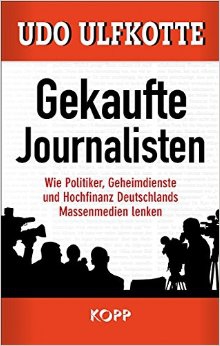 Malgré la pertinence des enquêtes d’Ulfkotte et donc leur « incorrection politique » dans un monde orchestré par des cénacles (financiers, stratégiques ou salafistes), pariant sur l’occultation totale de leurs démarches, ses livres étaient toujours mis en exergue par Der Spiegel qui signalait leurs tirages phénoménaux. Cela n’a pas empêché cet hebdomadaire de Hambourg de rédiger une notice nécrologique insultante sur ce militant en faveur de la transparence absolue, décédé le 13 janvier 2017. Un homme qui a travaillé jusqu’à son dernier souffle pour que triomphent nos libertés concrètes, sans compter ses efforts. Il faut continuer son combat. Que chacun d’entre nous y participe. A sa manière, à son rythme mais sans relâche aucune !
Malgré la pertinence des enquêtes d’Ulfkotte et donc leur « incorrection politique » dans un monde orchestré par des cénacles (financiers, stratégiques ou salafistes), pariant sur l’occultation totale de leurs démarches, ses livres étaient toujours mis en exergue par Der Spiegel qui signalait leurs tirages phénoménaux. Cela n’a pas empêché cet hebdomadaire de Hambourg de rédiger une notice nécrologique insultante sur ce militant en faveur de la transparence absolue, décédé le 13 janvier 2017. Un homme qui a travaillé jusqu’à son dernier souffle pour que triomphent nos libertés concrètes, sans compter ses efforts. Il faut continuer son combat. Que chacun d’entre nous y participe. A sa manière, à son rythme mais sans relâche aucune !
 del.icio.us
del.icio.us
 Digg
Digg


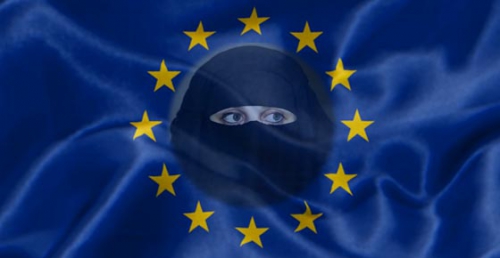
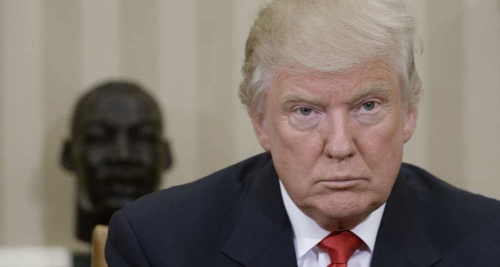
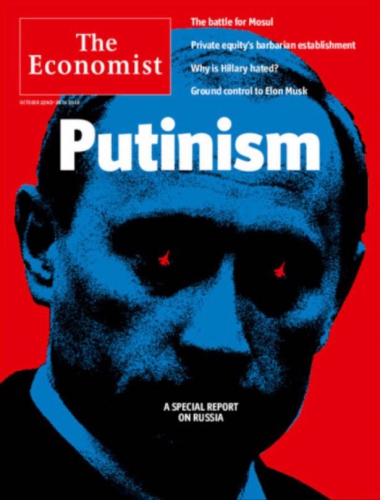
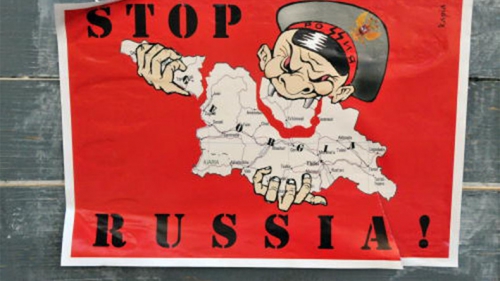





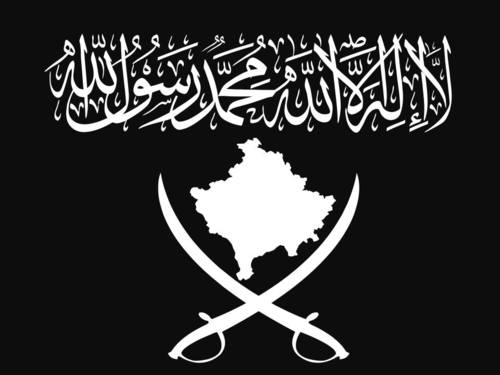

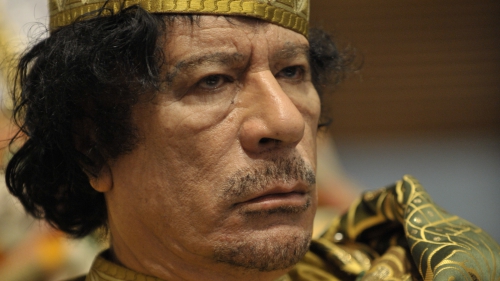

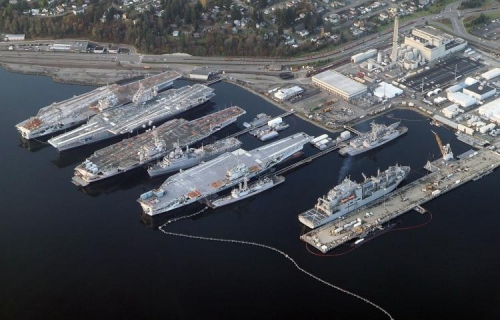
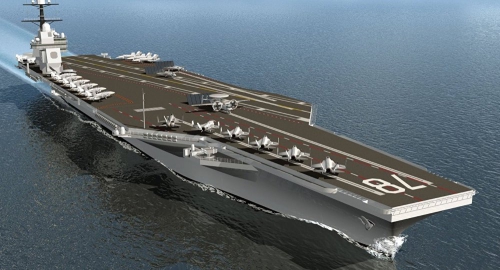
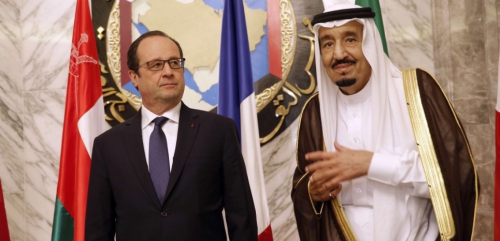
 La voracité des hommes politiques français est sans pareil. Il faut avoir lu pour s’en convaincre
La voracité des hommes politiques français est sans pareil. Il faut avoir lu pour s’en convaincre 
